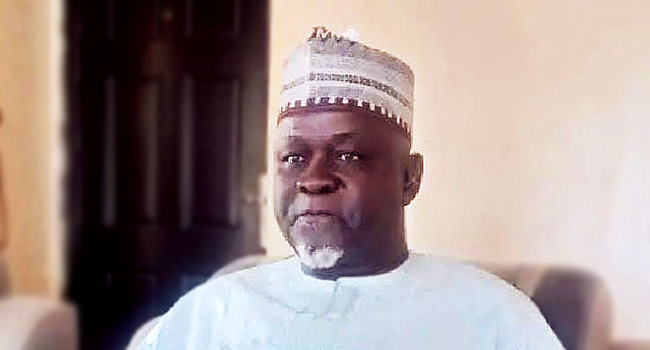Binani’s ex parte order has no influence on the lawsuit against Yunusa Ari. -CSO
A Civil Society Organisation, One Love Foundation, OLF, Monday, condemned the Federal High Court sitting in Abuja, on Monday, over barring the Independent National Electoral Commission, INEC, from prosecuting the Adamawa State Resident Electoral Commissioner, Hudu Yunusa-Ari, on alleged infractions of the Electoral Act during the March 18, 2023 governorship election in that State
The Founder and President , OLF, Chief Patrick Eholor, said the action of the trial judge, Justice Donatus Okorowo, stopping INEC from arraigning Yunusa-Ari, in an ex-parte order, had almost dashed their hope in the judiciary.
In a statement signed by Eholor, made reference to other similar cases in other courts, and said Yunusa-Ari needs to be arraigned according to law, and not to be shielded.
The statement reads in part, “Our hopes as activists and people of good conscience that the Independent National Electoral Commission, INEC, would charge the suspended Resident Electoral Commissioner, REC, in Adamawa State, Hudu Yunusa-Ari, before a state high court, would have been dashed.
“This is because we just received news that the Federal High Court sitting in Abuja, on Monday, stopped INEC from prosecuting Yunusa-Ari.
“Yunusa-Ari would have been arraigned over his declaration of Aisha Dahiru, the All Progressives Congress, APC, governorship candidate in the March 18 poll, winner of the election.
“As an Adamawa State High Court sitting in Yola had adjourned till July 12, 2023, for the arraignment of Yunusa-Ari.
“The trial judge, Justice Donatus Okorowo, stopped INEC from arraigning Yunusa-Ari, in an ex-parte order, granted following the suit by Mr. Michael Aondoaka, SAN, counsel to Dahiru.
“The court granted the ex-parte motion to the effect. More in this article we defer and we wish to submit in the negative that the power of security agency including INEC in line with new the Electoral Act (LFN 2022) to investigate persons even in the face of express orders of court are enormous and instructive and hence like in this present case, the attempt by the applicant to hag and muscle the power of security agency and INEC to investigate him for offences under Electoral Act cannot be over emphasized.
In the highlighted court of appeal decision in Hassan vs Economic and Financial Crimes Commission (2013) LPELR- 22595 (CA), PP. 39-40, Paras F – E) the Court of Appeal stated that: “It is trite that once criminal allegations are made against a citizen, the police and including INEC has a constitutional and a statutory duty to investigate the allegations…and in carrying out these tasks, the police is empowered under the provisions of Section 24 of the Police Act to arrest without warrant any person whom any other person charges with having committed a felony or misdemeanor – Ibikunle v. State (2007) 2 NWLR (pt. 1019) 546. provided, as stated in Section 27 of the Police Act, that a person so arrested without a warrant shall be taken before a magistrate within a reasonable time or granted bail with or without sureties at the Police Station.
“Reading these provisions of the Police Act and new Electoral Act along with the provisions of Sections 35 (1) (c), 41 (2) (a) and 45 of the Constitution, it is clear that where it is shown that INEC and Police acted reasonably within its powers under the Police Act and Electoral Act in the investigation of a criminal complaint and with reasonable grounds to believe that a person had committed a criminal offence or is likely to commit one, the necessary curtailment of the fundamental rights of such a person cannot amount to a breach of that person’s fundamental rights – Onah v. Okenwa (2010) 7 NWLR (pt. 1194) 512.” (Underlining mine). “See also Agbi v. Ogbeh (2005) 8 NWLR (pt. 926) Christlieb Plc v. Majekodunmi [2008] 16 NWLR (PT. 1131) 324. Uwazuruike v. Attorney-General of the Federation (2008) 10 NWLR (Pt.1096) 444 at 458-459 the Court of Appeal then had held as follows: “It is apparent that the Federal High Court, Owerri and Federal High Court, Abuja are Courts of concurrent jurisdiction, therefore the contention by the counsel for the Appellant that 1st Appellant was charged to court maliciously in flagrant disrespect of an order of Federal High Court, Owerri cannot be correct, because courts that are of similar or concurrent jurisdiction are not bound to follow the decision of each other. See-Prof. AD. Olutola V. University of Ilorin (2005) 3 W. R, N Page 22} (2004) 18 NWLR (PT.905) 416.
“I also agree with the submission of learned counsel for the respondent that an order granted by the Federal High Court, Owerri was an ex parte order for the applicant that is the 1st Appellant in this Court, to enforce his fundamental human rights. It was not an order directed to the proceedings before the same court sitting in Abuja. Consequently, it is my view that the trial judge was right not to have given credence to the Federal High Court, Owerri as the order given by that court was not binding on the court.
“In line with all this court decisions above, it apparent that the order of Justice Donatus Okorowor of Abuja Federal Court is not total and definite as a bar in stopping the criminal proceedings initiated by INEC against Mr Hudu Yunusa- Ari in the face of overwhelming evidence that he committed infraction of electoral and other criminal offences, we humbly submit that the Adamawa State High Court can still maintain and that the charge filed by INEC can still be sustained and Mr Hudu Yunusa-Ari should be charged accordingly in line with the extant provisions of Electoral Act.
“We so urge INEC not to be deterred by the Exparte orders sought by Mr Yunusa- Ari, which have no bearing with charges filed against him at Adamawa State High Court and he should be charged accordingly to court.”




